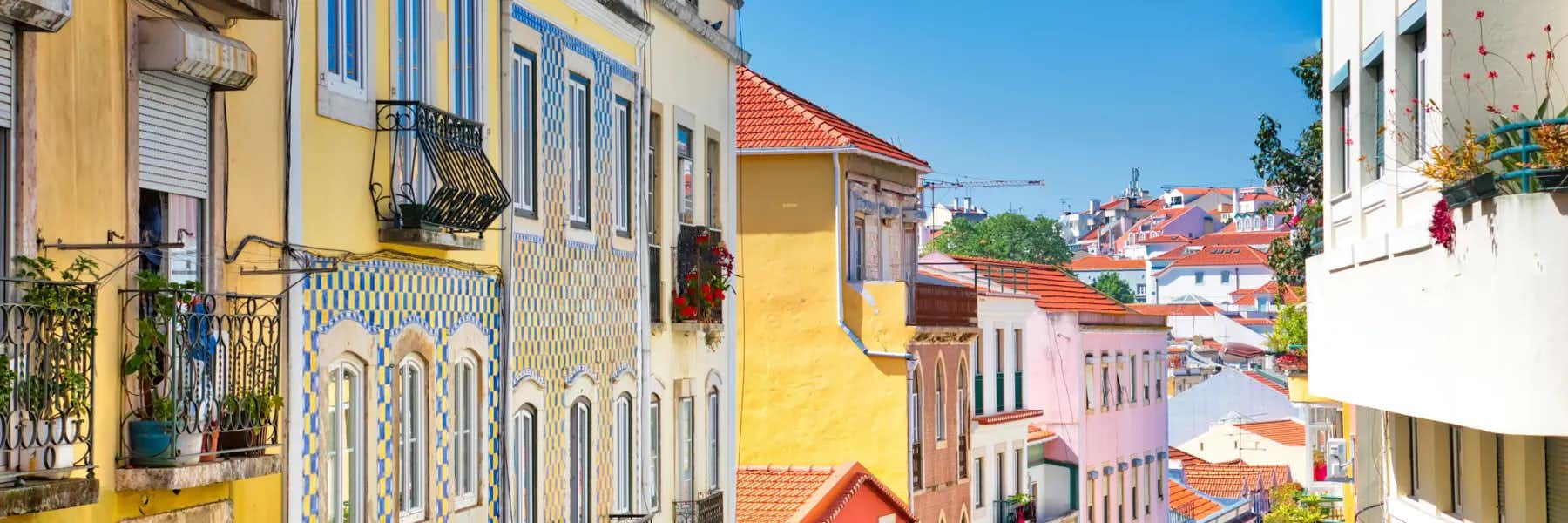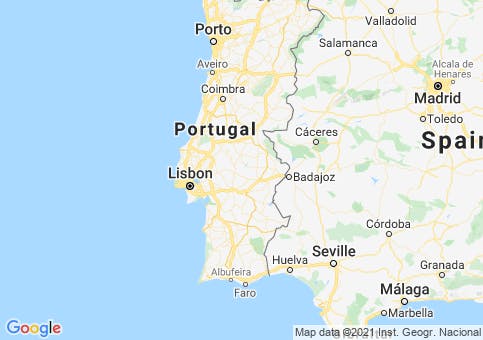If you’re not ready to make a commitment right away, many rental opportunities that suit your needs exist. But you’ll have competition in your search. The Portuguese economy is growing at about 2% per year, which is above average for the Eurozone and almost on par with growth prior to the economic crisis, according to a recent report from the Portuguese National Statistics Institute (INE). That means that the rental market will continue its high demand.
Short-Term vs Long-Term Rentals
In general, here’s what to expect. The rental market is divided into short-term (including vacation rentals) and long-term. Short-term is less than 12 months; it’s an option that potential expats may consider when testing the waters here, to see if it’s really an option for relocation. A vacation rental is for fewer than three months and an option for North Americans and other non-EU citizens who are limited to the Schengen Zone’s 90-day stay. Beach and other tourist locales generally tend to have a good number of short-term rentals available.
Get Your Free Portugal Report Today!
Get Your Free Portugal Report Today!
Discover why we love a slower pace of life in Portugal and info on other European countries in our daily postcard e-letter. Simply enter your email address below and we’ll send you a FREE REPORT – Explore the Old World in Laidback Portugal.

By submitting your email address, you will receive a free subscription to IL Postcards, Overseas Dream Home, The Untourist Daily and special offers from International Living and our affiliates. You can unsubscribe at any time, and we encourage you to read more about our Privacy Policy.
The other option is to search for an extended stay executive rental in the major cities. Lisbon has several agencies that cater to the short-term renter. These renters are usually business people or executives who are visiting for a short period and need a home away from home. These types of rentals, as well as vacation rentals, almost always come furnished, with utilities included. It is important, however, to confirm the situation for the particular property you are considering, as the contract will state explicitly what is covered and what is not.
One thing to keep in mind is that vacation rentals are often pricey compared to what a long-term monthly rental fee would be. For example, you might find a three- or four-bedroom house in a surfing town like Ericeira in western Portugal that rents for €1,000 ($1,061) per month for a one-year lease. But sign up for four weeks in August and it’s possible you’ll pay three or four times that amount. A rule of thumb that might be helpful is to view your vacation stay as if you were in a hotel; if you would spend $100 per night in a hotel, figure $100 times 30 nights equals $3,000.
Consider renting in a vacation area off-season. The Algarve region has many vacation properties that are offered out of season for extended stays of several months at very competitive prices, although you will need to vacate when high season begins in summer. Executive rentals, mentioned above, are usually for a few months at most and will be reasonably priced for the area. They may not be in the high tourist areas or even the desirable residential areas. They will, however, provide a reasonably priced base to investigate the area and country for a future move.
Long-Term Rentals: What to Expect
Long-term, a year or more, you’ll be looking at prices in line with what you saw in the previous chapter. Depending on the geographical region of the country, neighborhood, size of the home or apartment, and construction quality, there will be considerable variance, but this is always a better deal than short-term.
Generally, the terms will be familiar to you. The landlord will expect first and last payment plus a security deposit. If you have a permitted pet, they may ask for a pet deposit. Do not be overly concerned about the deposits, as it is my experience that they are always returned promptly at the end of the lease as long as you have left the home in the condition it was when you moved in, or better. One other requirement that is occasionally requested is a fiador, or guarantor. This is a person who guarantees the financial aspects of your contract. It is more common among the older Portuguese, and in my experience, it’s waived if all else is in order. We have rented several apartments and have never been asked for this.
With a long-term rental, plan on providing at least some furniture or an appliance or two. For instance, a living room may come with couches, tables, chairs, and lamps, but bedroom furniture might be lacking. Or a refrigerator may be included in the kitchen, but no dishwasher or laundry facilities. Most homes are sold and/or rented without some of the amenities that would typically be included in the US. It is important to confirm the condition of the home before signing the contract.
It’s not unusual for the owner of a property to ask for a two-year lease, with the option on his or her part to bump the price a legally permitted amount after 12 months to accommodate inflation. (The government issues guidelines each year for permitted increases which are currently at 6.9%.) Situations and people differ, but with inflation costs landlords may or may not increase the rent. A property management company, however, is likely to increase the rent by the permitted amount.
Contracts, Deposits, and Legal Requirements
You’ll be required to sign a contract when you rent, and not a one-pager as you might expect elsewhere—in the US, for instance. The Portuguese like paper and all things official. The contract is required to be in Portuguese but if you ask, you might be able to obtain one written in both English and Portuguese. If not, make sure your representative can read Portuguese and explain it to you, line by line.
The rental system favors the lessee as opposed to the lessor. Generally, a lessee can terminate a contract after fulfilling only one-third of the contract with 60 days’ notice, but the lessor does not have the same option. So, you’ll find you have some leeway with respect to the terms of your arrangement if unforeseen circumstances prevent you from fulfilling your contractual obligations. And just like in the US or anywhere else, establishing a good relationship with the homeowner or property manager can make all the difference in the long run.
Be careful, though, not to enter into a long-term contract with the intention of terminating it after six months in order to obtain a lower rental rate. It is possible the landlord could pursue legal compensation if he or she has reason to believe the lease was entered into with the intent to defraud. Confirmed emergencies or changes in living situations will be accommodated quickly, though.
And one note about pets. Be upfront with the property manager or homeowner about pets if you plan to have one, as many, but not all will be accommodating.
What’s Included—and What’s Not
“So, exactly what’s included?”
Whether you’ll be renting or buying, it’s important to know precisely what you’re getting. Make a list, keep adding to it, and be sure to ask all the questions you can from the people you’ll be dealing with. You will be looking for answers from the landlord, the senhorio or senhoria, unless he or she is the owner, in which case it’s propriatorio or propriatoria. The manager in an apartment complex is called the geral.
In terms of utilities, assuming you’ll be in an urban location, you’ll be connected to public systems, known as being “on the rede,” whether it be water, electricity, or gas. Ask for the locations of the providers so you can get contracts in your name. In the alternative, lessors may prefer to keep the utilities in their name, and as the lessee, you will pay them directly for usage. Some Americans worry about establishing credit or a history with companies that provide services for electric, water, and such, but in Portugal this is not a concern.
In more rural settings, you’ll most likely purchase cans, known as garrafas, of propane from a local dealer.
With respect to appliances, a key when looking at listings is the word equipado. Never assume all the appliances you’re used to at home will automatically appear in your rental or purchase. You may come across something fully or partially fitted out, or in “bare bones” condition, with no appliances left behind. So, if when you viewed it there was a refrigerator and/or a stove, etc., specifically ask if they will remain.
Clothes washers are commonly found in the kitchen, bathroom, or sometimes outside, but dryers are not. The reason for this is that electricity is expensive throughout Europe and locals prefer to dry clothes in the fresh air outside. You will get used to seeing clothes drying on balconies everywhere.
Also, you can expect your new residence to be broom swept and clean, but don’t plan on the scent of fresh paint, or on the disappearance of all those tiresome little holes from the prior renter/owner’s art work or curtain rods. You can ask, but the odds are you will be told that it is your responsibility to freshen and retouch as you wish. You will find, however, that if you ask if you can make changes, you’ll probably get a green light. The Portuguese appreciate improvements.
Making a Home: Utilities, Fixes, and Improvements
Along those lines—and again, you should always ask out of courtesy, and because it may be required in your contract—you may find you don’t have enough electrical outlets in your new location. Portuguese apartments and homes tend to be quite erratic with respect to this. We have homeowner friends who were told when they were remodeling that it was too hard to put more outlets in. They insisted and got what they wanted.
You’ll need to find an eletricista for that job, and if there are plumbing issues, ask for a reference for a canalizadora. Looking to build cabinets or bookshelves? That’s a job for a carpinteiro. Incidentally, if there’s a word for “handyman” in the Portuguese language, I haven’t found it. In fact, I’ve been told many times that there isn’t. And it’s hard to find one single person who is, although talented in different trades, willing to do it all. If you find one, hold on to him or her for dear life. That person will save you a boatload of aggravation over time.
Get Your Free Portugal Report Today!
Get Your Free Portugal Report Today!
Discover why we love a slower pace of life in Portugal and info on other European countries in our daily postcard e-letter. Simply enter your email address below and we’ll send you a FREE REPORT – Explore the Old World in Laidback Portugal.

By submitting your email address, you will receive a free subscription to IL Postcards, Overseas Dream Home, The Untourist Daily and special offers from International Living and our affiliates. You can unsubscribe at any time, and we encourage you to read more about our Privacy Policy.












